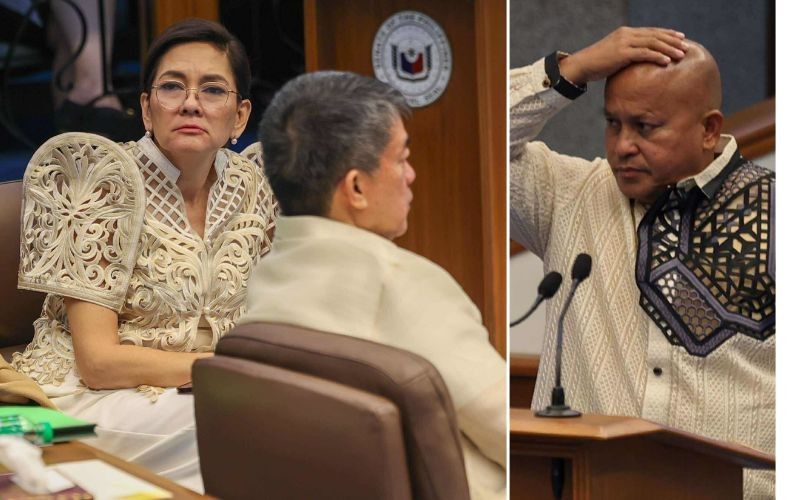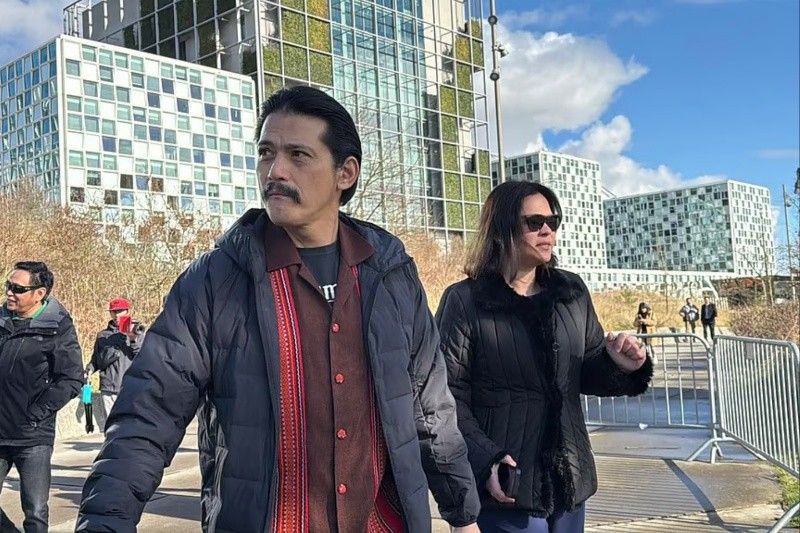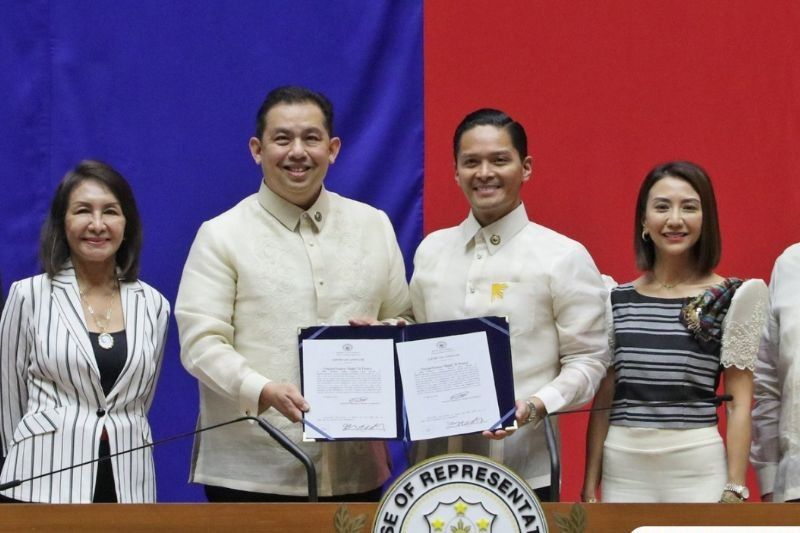
Upgrade to High-Speed Internet for only ₱1499/month!
Enjoy up to 100 Mbps fiber broadband, perfect for browsing, streaming, and gaming.
Visit Suniway.ph to learn
Cecille Suerte Felipe - The Philippine Star
April 7, 2025 | 12:00am
MANILA, Philippines — Cabinet members and other government officials who skipped the second Senate investigation on April 3 into the legality of the International Criminal Court arrest of former president Rodrigo Duterte, will attend the continuation of the probe on April 10, Senate President Francis Escudero has said.
Escudero said he decided to facilitate communication between the executive department and the Senate to avoid conflict between the two co-equal branches of government, after Sen. Imee Marcos pushed through with the committee on foreign affairs’ investigation into Duterte’s arrest.
“Didn’t I say the hearing shouldn’t add more conflict, arguments, and disputes? Didn’t I mention that this should be a source of unity, healing and deeper understanding, as much as possible? That can only happen if the questions can be answered without the need for confrontation using executive privilege on one side, and Senate subpoenas on the other,” the Senate President said in Filipino in an interview over dzBB.
Escudero said he facilitated the communication between the executive department and the Senate.
“I decided to facilitate communication between the executive department and the Senate, and the hearing has been moved to April 10, where the officials invited by Senator Imee will attend,” he said.
Escudero, however, said the committee has requested several people, including Criminal Investigation and Detection Group chief Nicolas Torre III, who must be present in the hearing as the lead officer in the arrest of Duterte on March 11.
On April 3, invoking executive privilege, executive officials snubbed the invitation of the Senate foreign relations committee investigating the arrest of former president Duterte and turnover to The Hague.
Their absence compelled Marcos to call, on motion by Sen. Ronald dela Rosa, for a subpoena to compel attendance or risk contempt.
Absent at the hearing were Torre, Secretaries Jesus Crispin Remulla, Jonvic Remulla, Gilberto Teodoro Jr. and Enrique Manalo; Philippine National Police chief Gen. Rommel Marbil, PNP spokesperson Brig. Gen. Jean Fajardo; National Security Adviser Eduardo Año; Prosecutor General Richard Anthony Fadullon and Philippine Air Force commanding general Arthur Cordura.
Although he did not discuss how he was able to secure the commitment of the Cabinet members to attend the Senate probe, Escudero said the Senate does not need to issue subpoenas to compel them to be present in the inquiry.
“I messaged Senator Imee about that (request to subpoena officials of the executive department). One of the recommendations is that if the Senate truly wants to fight for it, we should file a case with the Supreme Court. But I want to reiterate, that goes against our goal of having the hearing promote healing, unity, and understanding – not to create more chaos, a constitutional crisis or additional cases,” he explained.
Escudero noted that officials of the executive department could still invoke executive privilege depending on the questions.He is optimistic “there will be a lively exchange of viewpoints, questions, and answers as Senator Imee continues the hearing.”
When asked whether the issuance of a subpoena prompted their commitment to attend the hearing, Escudero said, “Which police officer would respond if you order the arrest of the DILG secretary? Which officer would comply if you ordered the arrest of the DND secretary? That’s what I mean by a constitutional crisis. Those two institutions are clashing. One institution does not follow the other because it believes it is right and legal.
“As long as there is no decision from the Supreme Court, we’re in a state of suspended animation. That’s what we call a constitutional crisis, I don’t want us to reach that point,” he said.
Escudero said the Supreme Court decision on executive privilege was anchored on Executive Order 464 issued by then-president Gloria Macapagal-Arroyo in 2005, which restricts certain executive officials from appearing before Congress without prior presidential approval.
“Any appeal to the Supreme Court from the Senate and Congress should be studied very carefully, as the decision released might worsen the situation compared to the earlier rulings, which nearly tied the hands of Congress in its investigations,” he added.
When asked what pieces of legislation could result in the investigation, Escudero cited a possible amendment to the international humanitarian law.

 2 months ago
15
2 months ago
15



